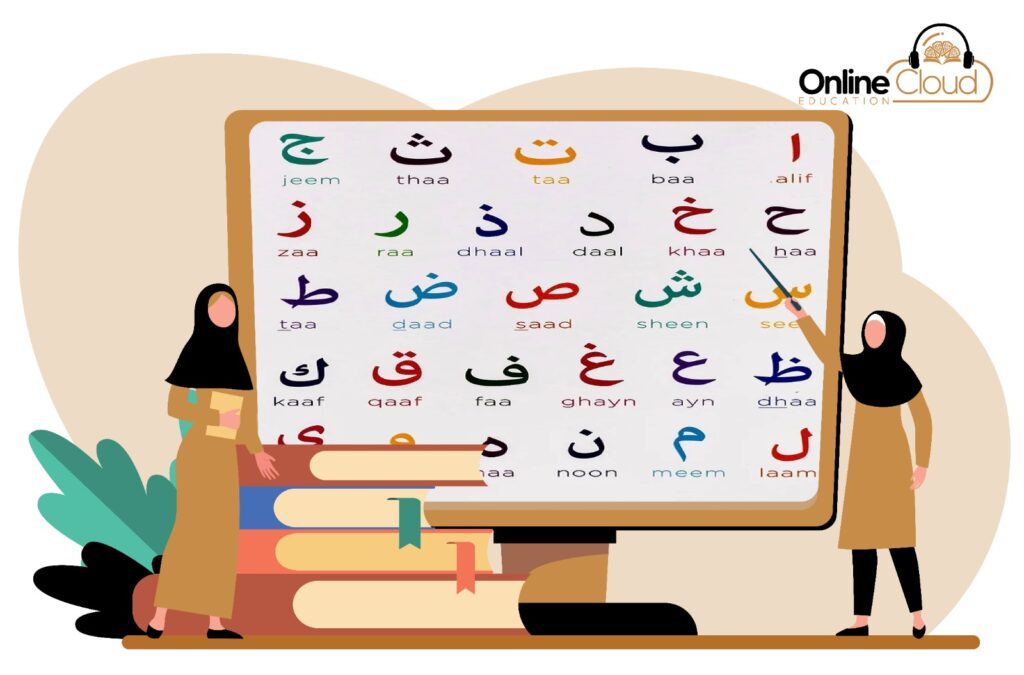You may cancel your subscription any time by giving 1 month notice
Class Instructor
Support Availability
Native Instructors
Enrolled Students
To create a comprehensive and personalized prayer guide that integrates key Islamic prayer and spirituality elements.
Perform ritual purification.
Choose a clean, quiet area facing the qibla.
Have a clear intention to perform the specific prayer.
Begin with “Allahu Akbar” (God is Great).
Recite Surah Al-Fatihah and other Quranic verses in Arabic.
Follow specific movements including standing, bowing (Ruku’), prostration (Sujud), and sitting.
Conclude with the Tashahhud and Salam (greetings).
By adhering to these guidelines and avoiding common mistakes, Muslims can establish a meaningful and spiritually enriching prayer routine throughout the day.
It’s easy to learn from teachers in today’s digital time it’s easy to the internet made it easy for us can learn properly from the comfort of our homes at online cloud education from qualified teachers claim your free trial now
online cloud education provides a valuable opportunity for individuals interested in deepening their understanding of Islamic prayer. Offering a variety of comprehensive courses, the academy covers essential aspects of prayer, including proper techniques and the significance of focus and intention. The instructors are highly knowledgeable and committed to sharing their expertise effectively. Accessible to all, regardless of location or prior knowledge, the academy serves as a beneficial resource for anyone seeking to expand their knowledge of Islamic prayer. For those looking to enhance their understanding of prayer coaching, online cloud education stands out as an exceptional platform to consider exploring.
Click Here to learn about Ijaza Certificate
We aim to share every aspect of Islamic studies at our online Quran learning school. Make Islamic studies the way of your life and strengthen your relationship with Allah Almighty. Feel free to share your valuable suggestions. Your satisfaction is our ultimate goal!
Enrollment: Simply fill up the enrollment form to join our online Quran classes. You can also provide your contact information through live chat in the “live chatbox” available on the right bottom corner of the page and our representative will guide you regarding our online Quran classes.
Trial Lesson: You can attend up to 3 days of free trial lessons with our live Quran teachers to have a better understanding of our one-on-one teaching method.
Lessons per week: You can take 2 to 5 lessons per week as per your suitability.
Lesson Duration: Every lesson is 30 minutes long.
Lesson Medium: The lessons are taken through Skype or Zoom whichever is suitable for you.
Language: Lessons can be arranged in English, Arabic, Urdu, and Hindi.
Quran Teachers: We have male and female Quran tutors who are highly qualified and experienced.
Fee Plans: Please visit Fee Plans to see our extremely reasonable standard fee plans or contact us through the “live chatbox” to discuss our customized and discounted fee plans.
Fee Payment Modes: There are several payment modes available to transfer the fee. you can pay through PayPal, Master Card, Bank account transfer, and Western Union, etc.
| Schedule / Week | Classes per Month | Fee USD |
| 2 Classes / Week | 08 / Month | $22 / Month |
| 3 Classes / Week | 12 / Month | $29 / Month |
| 4 Classes / Week | 16 / Month | $35 / Month |
| 5 Classes / Week | 20 / Month | $40 / Month |
| HIFZ CLASSES | 20 / Month | $70 / Month |
| Schedule / Week | Classes per Month | Fee CAD |
| 2 Classes / Week | 08 / Month | $33 / Month |
| 3 Classes / Week | 12 / Month | $40 / Month |
| 4 Classes / Week | 16 / Month | $48 / Month |
| 5 Classes / Week | 20 / Month | $55/ Month |
| HIFZ CLASSES | 20 / Month | $110 / Month |
| Schedule / Week | Classes per Month | Fee GBP |
| 2 Classes / Week | 08 / Month | £22 / Month |
| 3 Classes / Week | 12 / Month | £30 / Month |
| 4 Classes / Week | 16 / Month | £34 / Month |
| 5 Classes / Week | 20 / Month | £38 / Month |
| HIFZ CLASSES | 20 / Month | £70/ Month |
| Schedule / Week | Classes per Month | Fee AUD |
| 2 Classes / Week | 08 / Month | A$42 / Month |
| 3 Classes / Week | 12 / Month | A$55 / Month |
| 4 Classes / Week | 16 / Month | A$63 / Month |
| 5 Classes / Week | 20 / Month | A$70 / Month |
| HIFZ CLASSES | 20 / Month | A$140 / Month |
Students from other countries can also get registered and ask us about the fee options.
Yes – you can experience online Quran classes free for a week in our trail classes.
To enroll in our online Quran classes
We accept all major debit/credit cards and Paypal payments.
Your monthly fee is collected within first week of every month in advance.
No. You are not required to give credit card information to anyone. You will make payment online in very secure environment.
Yes, there is discount for multipule members of a family.
You may cancel your subscription any time by giving 1 month notice

Register Now, and get a free trial at your suitable time, you can choose your desired Instructor, Male or Female at your preferred time, There is no age limit.
